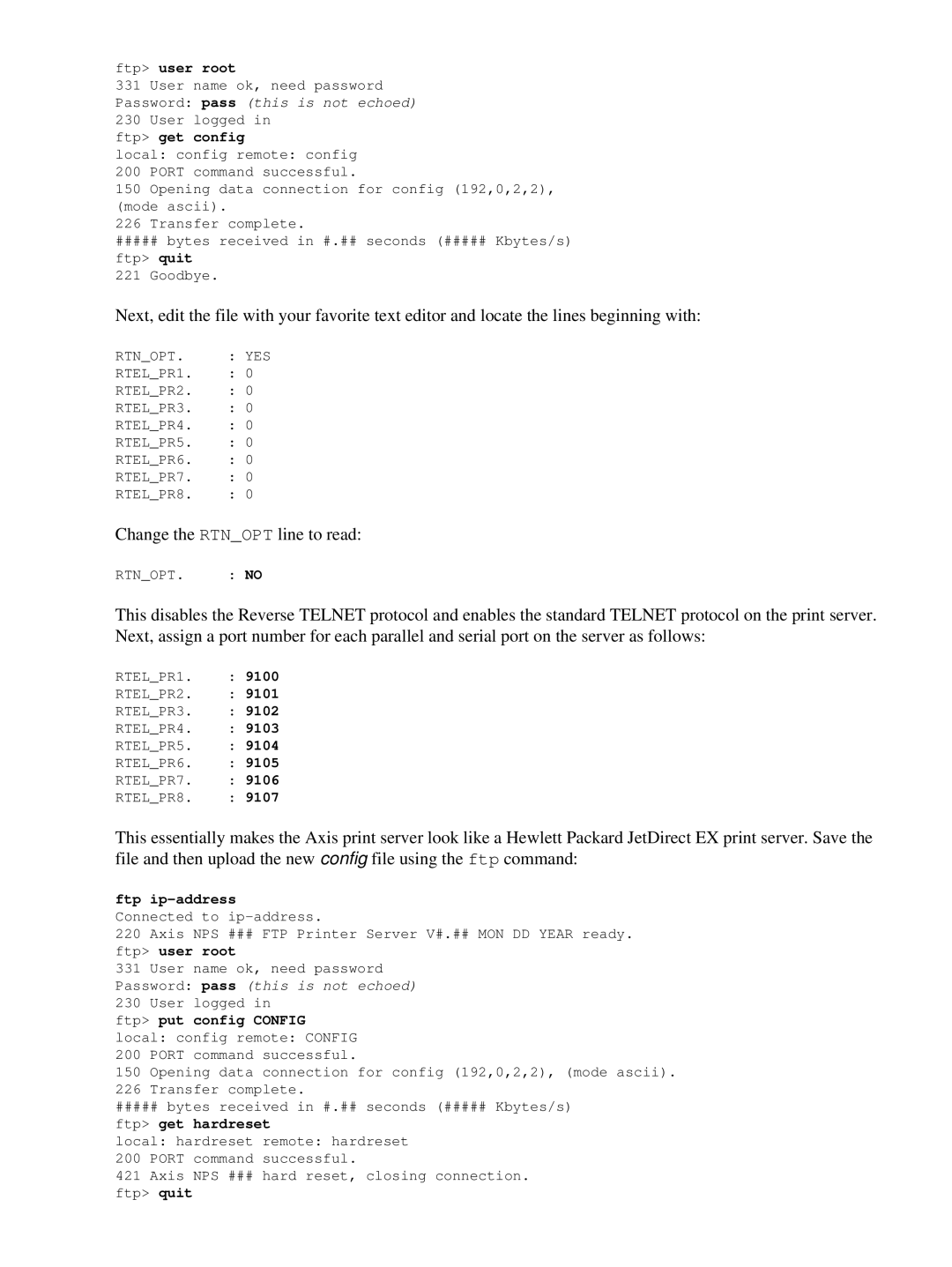ftp> user root
331 User name ok, need password Password: pass (this is not echoed)
230 User logged in ftp> get config
local: config remote: config 200 PORT command successful.
150 Opening data connection for config (192,0,2,2), (mode ascii).
226 Transfer complete.
#####bytes received in #.## seconds (##### Kbytes/s) ftp> quit
221 Goodbye.
Next, edit the file with your favorite text editor and locate the lines beginning with:
RTN_OPT. : YES
RTEL_PR1. : 0
RTEL_PR2. : 0
RTEL_PR3. : 0
RTEL_PR4. : 0
RTEL_PR5. : 0
RTEL_PR6. : 0
RTEL_PR7. : 0
RTEL_PR8. : 0
Change the RTN_OPT line to read:
RTN_OPT. : NO
This disables the Reverse TELNET protocol and enables the standard TELNET protocol on the print server. Next, assign a port number for each parallel and serial port on the server as follows:
RTEL_PR1. : 9100
RTEL_PR2. : 9101
RTEL_PR3. : 9102
RTEL_PR4. : 9103
RTEL_PR5. : 9104
RTEL_PR6. : 9105
RTEL_PR7. : 9106
RTEL_PR8. : 9107
This essentially makes the Axis print server look like a Hewlett Packard JetDirect EX print server. Save the file and then upload the new config file using the ftp command:
ftp
220 Axis NPS ### FTP Printer Server V#.## MON DD YEAR ready. ftp> user root
331 User name ok, need password Password: pass (this is not echoed)
230 User logged in ftp> put config CONFIG local: config remote: CONFIG 200 PORT command successful.
150 Opening data connection for config (192,0,2,2), (mode ascii). 226 Transfer complete.
#####bytes received in #.## seconds (##### Kbytes/s) ftp> get hardreset
local: hardreset remote: hardreset 200 PORT command successful.
421 Axis NPS ### hard reset, closing connection. ftp> quit
